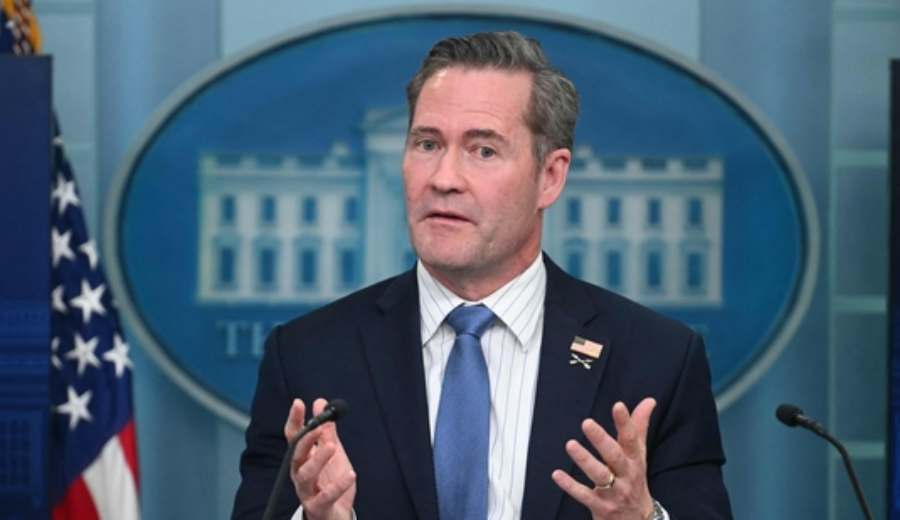A Dramatic Shake-Up in Washington
The Trump administration is reeling from a major scandal after National Security Adviser Mike Waltz was removed from his position due to a significant security breach. This incident, dubbed “Signalgate,” has sent shockwaves through the political landscape and raised serious questions about the handling of classified information.
The ‘Signalgate’ Scandal Unfolds
At the heart of the controversy is the unauthorized sharing of classified information via the Signal messaging app. Journalist Jeffrey Goldberg of The Atlantic inadvertently stumbled upon a sensitive discussion in a Signal group chat involving Waltz and other senior officials. The conversation pertained to sensitive military plans for airstrikes in Yemen, highlighting a glaring lapse in security protocols.
Waltz’s Turbulent Tenure Ends Abruptly
Waltz’s tenure as National Security Adviser, which began on January 20, 2025, was marked by controversy and internal discord. His reliance on unsecured communication channels for discussing national security matters had already drawn criticism from both within and outside the administration. The leak not only compromised operational security but also exposed a systemic failure in adhering to established protocols for handling classified information.
Internal Pressures Mount
The decision to remove Waltz was reportedly influenced by mounting pressure from key figures within the administration, including Chief of Staff Susie Wiles and political influencer Laura Loomer. Loomer publicly criticized Waltz for perceived disloyalty, contributing to his political downfall.
A Symbol of Growing Tensions
In a dramatic turn of events, Waltz was left stranded on the tarmac at Joint Base Andrews after being denied boarding on Air Force One, just days before his dismissal was officially announced. This incident underscored the growing tensions and lack of communication within the administration.
What’s Next for Waltz?
Following his removal, President Trump nominated Waltz to serve as the U.S. ambassador to the United Nations, a move that has sparked debate given the circumstances of his departure from the national security adviser role. Steve Witkoff, a real estate developer and close ally of Trump, is rumored to be a leading candidate to permanently fill the national security adviser position.
Rubio Steps Into the Spotlight
Secretary of State Marco Rubio has been appointed as the acting national security adviser, signaling a potential shift in the administration’s approach to national security and internal communications. Rubio’s appointment is seen as an effort to stabilize the National Security Council and restore confidence in the administration’s ability to handle sensitive information.
Broader Implications
The “Signalgate” scandal has raised serious questions about the administration’s commitment to safeguarding classified information and adhering to established security protocols. As the Trump administration navigates this controversy, the appointment of Marco Rubio as acting national security adviser signals a potential shift in the administration’s approach to national security and internal communications.
Key Takeaways:
- Mike Waltz removed as National Security Adviser over a security breach.
- Marco Rubio steps in as acting national security adviser.
- Waltz nominated as U.S. ambassador to the United Nations.
- The incident highlights lapses in handling classified information.
- Growing tensions within the administration come to the fore.
This scandal not only reflects the challenges of maintaining security in the digital age but also underscores the internal dynamics and power struggles within the Trump administration. As the situation continues to unfold, all eyes will be on how the administration addresses these issues and whether it can restore public confidence in its ability to handle sensitive information.
















